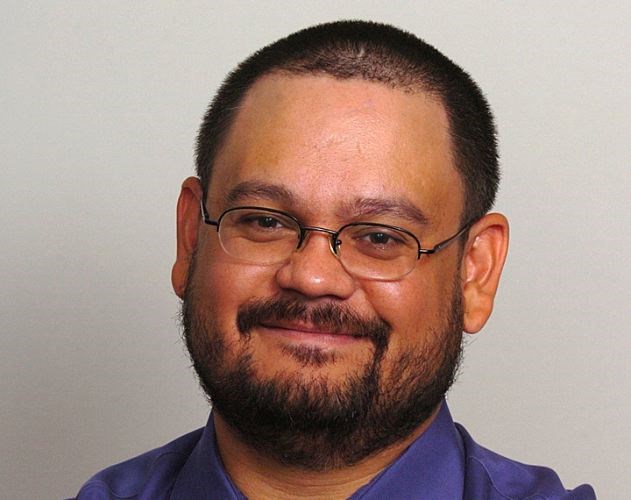Elusive, outrageous, intoxicating: Christy Clark's miracle elixir of liquefied natural largesse may be one of the most audacious political promises ever concocted.
As a policy, it continues to smack of a Hail Mary heave from a fading government so desperate Vancouver Sun columnist Vaughn Palmer once quipped "And you thought they'd put Fantasy Gardens into mothballs after Bill Vander Zalm left office." Its appearance in Clark's 2013 speech from the throne was indeed a stately pleasure-dome decree - the province would have at least five LNG plants at work by 2020; the sector would contribute $1 trillion in cumulative GDP in 30 years; $100 billion of that would flow into a B.C. "Prosperity" fund that would wipe out the province's $56 billion debt by 2028.
Even at the time, the Liberal vision seemed more like a Coleridgian opiate delusion than a legitimate plank in a party's re-election platform - Palmer pointed out then the province had zero LNG plants online, no firm commitments from any major players to build one, serious questions about how to power them and flawed notions on how to tax them. But the next best idea in that throne speech was the vague hope to create a school of traditional Chinese medicine and it fed into the magical narrative that the Liberals do nothing but good for the economy and the NDP are Marxist self-harmers when it comes to money.
The Liberals won re-election but far from tempering LNG expectations, Clark's government doubled-down on them. According to the National Post, they repeated their earlier wild projections in their throne speech last February, riffing on U.S. President John F. Kennedy and calling the development of the sector a generational challenge on par with the moon landings. But the LNG file continues to degenerate into the Liberals' Bay of Pigs more than their Tranquility Base.
As Palmer noted last month, the Liberals' then most advanced hope was doused somewhat last July when Apache Canada pulled out of Kitimat LNG, leaving Clark's boasts for the industry resting on Petronas' proposed LNG plant near Prince Rupert.
Petronas, however, isn't quite as keen to take its role as the premier's fairy godmother. In a scathing article in the Financial Post, Petronas said it was ready to walk away from the $36 billion project due to the Liberals' proposed tax regime and rising competition from the U.S.
The U.S. problem is two-fold - the Financial Post points out that the boom in U.S. shale gas means the Americans, once Canada's biggest buyer of natural gas, aren't importing as much gas - 26 per cent less between 2007-2013. That means the industry is that much more desperate for companies like Petronas to get their gas to other, particularly Asian, markets. Ditto the Liberals, who, as the Sun reported, saw in 2012 falling North American gas prices blow a three-year $1.1 billion hole in their projected revenues. The Americans also don't see their sudden wealth of natural gas as a cash cow but as a strategic tool: the U.S. wants to counter Russian president Vladimir Putin ability to blackmail the Ukraine and the rest of Europe by threatening to disrupt its supply of natural gas to the continent, so its main concern is speed. According to the New York Times, the Obama administration has rushed 21 applications for LNG export facilities, with one in Sabine Pass, La., set to open in 2015. B.C., according to the Globe and Mail, has 17 proposed plants.
Should those U.S. facilities start up, it won't take much for those ships to also head to Asia where the Liberals LNG dreams lie.
The problem for the Liberals and Petronas is the government's proposed tax regime for LNG exports that, according to the Canadian Press, is envisioned to start at 1.5 per cent and climb to seven per cent once a plant is running and capital costs have been deducted. Liberal Finance Minister Mike de Jong admitted the seven per cent figure is at the top of the range but Palmer wrote as early as 2013 the natural-gas sector has been worried about an "arbitrage tax" on LNG. He went on to wonder then just what the Liberals would have said if the NDP "were proposing to raise the provincial levy on natural gas by as much as a third."
Which brings the matter to last Monday, when the Liberals throne speech, which revolved around setting the legislative framework around LNG, was thoroughly upstaged by a Petronas press release. According to the Canadian Press, the energy giant amplified its complaints by warning it would delay the Rupert project 10-15 years unless it saw progress and certainty on a variety of issues, including the aforementioned tax regime, by the end of this month.
The Globe and Mail points out Petronas doesn't hold all the cards - so far it's spent $5.2 billion and two years in the federal approval process to takeover Progress Energy, along with $2 billion drilling at its land assets in B.C.; it won't just walk away from the province. But while CP said the Liberals excised much of the LNG hype from its throne speech - gone are the promises of hundreds of thousands of jobs and the end to provincial debt - the sector, as intangible and fluid as it is, still forms the crux of Liberal policy, one way British Columbians must "choose whether to grow or to decline."
But the Liberals are in a real bind - they have promised and were elected on promises to solve all the province's financial worries with an LNG bounty but if its tax regime isn't generous to a fault Petronas and other investors will take their billions elsewhere.
For Petronas, LNG in B.C. is an investment; for the Liberals, it's an existential crisis.
It leaves one side with a lot of leverage and one with a lot to lose.



